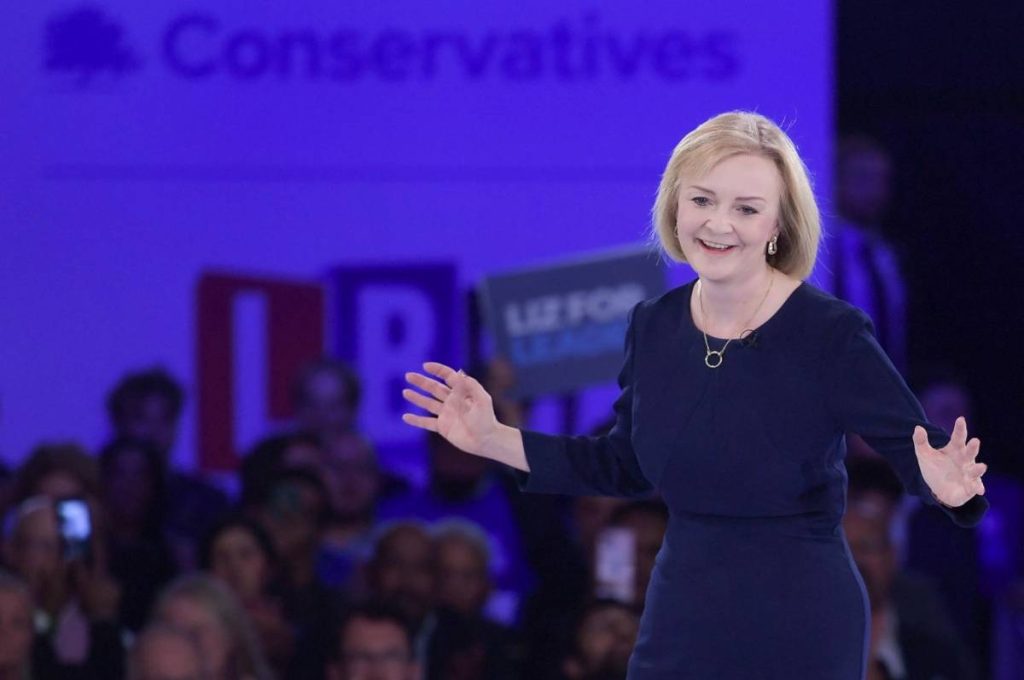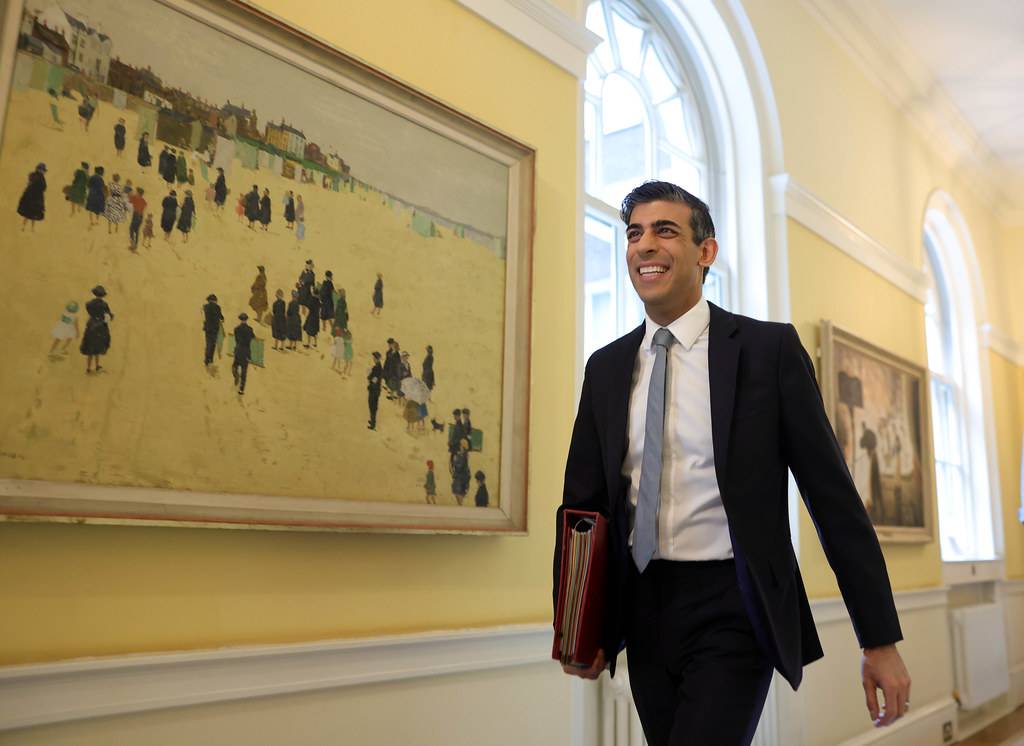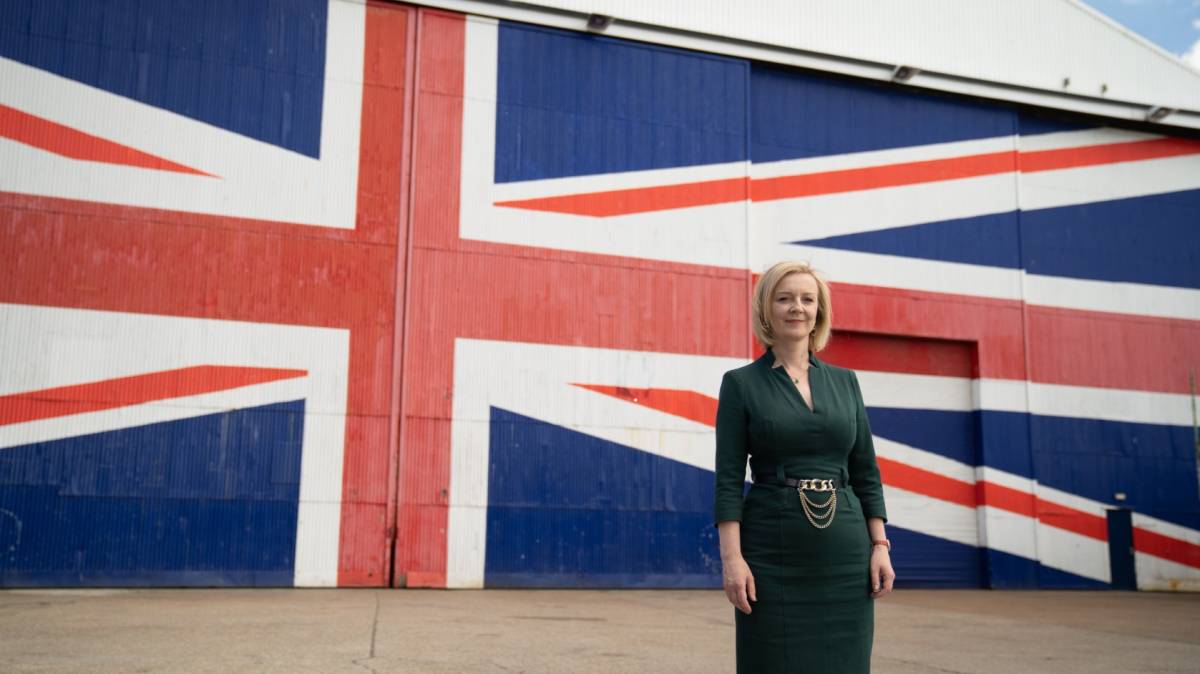If Truss wins, she would become Britain’s third woman prime minister. She has forged her image in homage to the first, Margaret Thatcher…reports Asian Lite News
Britain’s foreign secretary has emerged as the top contender to replace Boris Johnson as Conservative Party leader and prime minister. Some 200,000 party members were asked to choose either Truss or former Treasury chief Rishi Sunak, with the winner set to be announced on September 5 at 12:30pm local time.
While, Sunak came out on top in the early days of the race, more recently, not only has Truss closed the gap, but, polling suggests, appears to be looking at him in the rear view mirror.
If Truss wins, she would become Britain’s third woman prime minister. She has forged her image in homage to the first, Margaret Thatcher.

Truss has posed in a British Army tank in Eastern Europe, evoking an image of Thatcher during the Cold War. In a televised leadership debate this week, Britain’s top diplomat sported a pussy-bow blouse eerily similar to one the late prime minister used to wear.
Truss, 46, is a favourite among many Conservatives, who revere Thatcher above all other leaders. But critics say it’s an empty homage and believe Truss lacks the gravitas to lead the country amid economic turbulence and a European war.
If it’s not the pictures of her standing atop a tank, it’s the meme-defining moment when she vented her anger over cheese imports into Britain that made Liz Truss something of a household name.
For many, she was a figure of fun, but for those in the governing Conservative Party choosing who should replace Johnson, it is her conversion to passionate Brexit supporter and her offer of tax cuts that have propelled her to within touching distance of becoming Britain’s next prime minister.
It also helps that she is not former finance minister Rishi Sunak, who some in the governing Conservative Party blame for triggering the rebellion against his boss, Johnson, and fear cannot beat the opposition Labour Party in the next election.
As foreign secretary, Truss has been front and centre in Britain’s support for Ukraine and Western sanctions against Russia over the invasion of its neighbour. She also has figured prominently in the UK’s feud with the European Union over post-Brexit trade arrangements.
Her pugnacious approach – along with her promises to slash taxes and boost defence spending – have made her the favourite of the party’s strongly Eurosceptic right wing.

Writing in the Daily Telegraph, Truss said she was “the only person who can deliver the change we need on the economy – in line with true Conservative principles – and the only person capable of stepping up and leading the response to Ukraine and the increased security threat that the free world faces”.
Supportive lawmakers say Truss can govern from day one, with a plan to revive the economy by cutting 30 billion pounds ($36 billion) in taxes.
Saying she is a true Conservative, she has dismissed Sunak, a long-term party member and former Goldman Sachs banker, as being a “socialist”. “Now is the time for boldness, not a business-as-usual approach,” she said in a pointed reference to Sunak who has said he would not reduce taxes immediately.
But opponents criticise her as a dogmatist and a wooden public speaker, and note that she has not always been a true-blue Tory.
Truss’s ascent to the top of the Conservative Party has been anything but straightforward.
Born in Oxford in 1975, Truss is the daughter of a maths professor and a nurse who took her on anti-nuclear and anti-Thatcher protests as a child, where she recalled shouting: “Maggie, Maggie, Maggie – out, out out!”
Truss attended a public high school in Leeds, northern England, and then studied philosophy, politics and economics at Oxford University, where she briefly belonged to the centrist Liberal Democrats and called for the abolition of the monarchy.
She worked as an economist for energy giant Shell and telecommunications firm Cable and Wireless, and for a right-of-centre think tank while becoming involved in Conservative politics and espousing free-market Thatcherite views. She ran unsuccessfully for parliament twice before being elected to represent the eastern England seat of Southwest Norfolk in 2010.
Her early ministerial career was all but defined by a bizarre 2014 speech at the Conservative Party conference.
Stating that Britain imported two thirds of its cheese, she then declared angrily: “That. Is. A. Disgrace.”
A dramatic pause was met with a ripple of applause and the clip has become a much-used GIF and meme in Westminister and beyond.
Since entering the foreign office in September last year, Truss has been prolific in posting pictures of her endeavours – from standing in Moscow’s Red Square in a fur hat despite it being relatively warm to standing atop the tank in Estonia.
She has modelled herself as a strident critic of Russian President Vladimir Putin, but some fear her robust stance on Russia’s war could ratchet up tensions to perilous levels.
At an encounter with Russian foreign minister Sergei Lavrov just before Moscow invaded Ukraine, Truss was left embarrassed when he got her to deny Russian sovereignty over Rostov and Voronezh, two regions in the south of Russia, the Kommersant newspaper reported.
A British source said Truss had misheard during the meeting, calling it “classic Russian propaganda”.
Truss has also warned China to learn lessons from the West’s response to Russia’s invasion of Ukraine and said Beijing would face consequences if it did not “play by the rules”.
Her record as foreign secretary has drawn mixed reviews. Many praise her firm response to the invasion of Ukraine, and she secured the release of two British nationals jailed in Iran where her predecessors had failed. But EU leaders and officials hoping she would bring a softer tone to the UK’s relations with the bloc have been disappointed.
Even her supporters fear she could be too quick with opinions to be an effective diplomat, but for the contest, most Conservatives are more focused on matters closer to home.
Her appeal, even her most reluctant supporters say, is that she is dynamic, a workaholic who is across the detail of policy. Others believe she can steady the ship after Johnson’s turbulent three years in power.
Beyond tax cuts funded by more borrowing, Truss has said the debt incurred from the Covid-19 pandemic should be treated like a “war debt” and should be paid back over a longer period.
Sunak has criticised her plan as “a fairytale”. Truss replied: “You cannot tax your way to growth.”
But it is perhaps her stance on Brexit that had the biggest impact.
In Britain’s 2016 referendum on whether to leave the European Union, Truss backed the losing “remain” side. But she has served in Johnson’s staunchly pro-Brexit government as trade secretary and then foreign secretary, and has won the support of the Conservative Party’s most fervent Brexiteers.

Leave a Reply